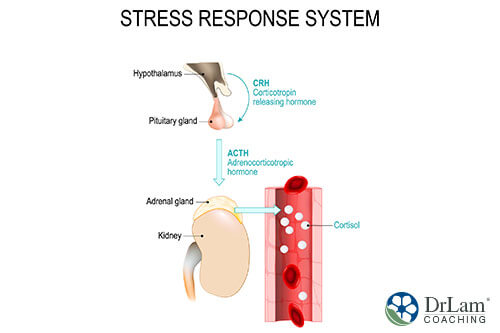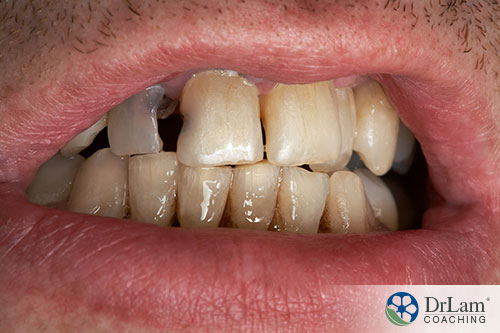 The coronavirus has changed our lives in ways we never imagined. Many of us stay at home, leaving only to buy essentials, while others go out every day keeping the economy alive and ensuring our shelves stay stocked and essential services are seen to. But this is also a time of stress, and your immune system may be taking a hit when you need it most.
The coronavirus has changed our lives in ways we never imagined. Many of us stay at home, leaving only to buy essentials, while others go out every day keeping the economy alive and ensuring our shelves stay stocked and essential services are seen to. But this is also a time of stress, and your immune system may be taking a hit when you need it most.
A compromised immune system reduces your body’s ability to deal with stressors, including a virus. Sticking to the basics will help keep your immune system functioning as it should. This includes getting enough sleep, getting regular exercise, and following a healthy diet. But eating the wrong foods, over-exercising, and taking the wrong supplements can make things even worse. Here's what you need to know to do it right.
Your immune system consists of organs, cells, and chemicals all aimed at one thing: keeping you healthy. To this end, your immune system immediately springs into action the moment it perceives any threat. A virus is one such threat.
Under normal conditions, your immune system keeps a record of any type of adversary encountered. This it does by means of antibodies. In effect, this means that if your body ever encounters a specific virus that it has antibodies for again, it will immediately recognize it and destroy it.
The problem arises when a new threat presents itself, like the coronavirus. Your body has no antibodies against it, and must thus fight it with the much more destructive and sloppy branch of the immune system until it can create antibodies against this and future infection.
The first organ to perceive such a threat is the hypothalamus, in your brain. As part of the Hypothalamic-Pituitary-Adrenal (HPA) axis, it starts a series of chemical messages that progress throughout your body, getting all systems in line to fight the threat. This series of changes is known as the NeuroEndoMetabolic (NEM) Stress Response, and it directly affects your immune system. This is because, together with the generated flight or fight response that sees an increase in cortisol production while certain organs and activities are put into a state of preparation and other organs and activities are put into a state of rest to combat the threat, your immune system, called upon to protect your body, goes into overdrive.
While we may talk about stress, stress does not necessarily only imply psychological stress but also physical stress. And a viral infection is definitely a stressor.
The moment NEM response activation takes place, your immune system immediately sends white blood cells to the place of infection to deal with the situation. In many cases, the antibodies in the white blood cells stave off the infection quickly. But when presented with something new, a real fight begins. One of the signs your body is fighting off the infection is inflammation.
Your body’s inflammatory response is directly linked to your immune system. At the same time, this inflammation, together with the virus or bacteria being fought, puts added stress on your body. This results in your NEM calling for an even higher production of cortisol. And the organs implicated in this just so happens to be your adrenal glands.
The adrenals, important for cortisol production, are put under enormous strain when the NEM stress response continues over a long period. They may, after a while, become incapable of keeping up with the cortisol demand and gradually start producing less cortisol. This typically occurs during the latter stages of adrenal fatigue. With dysregulated levels of cortisol in your body, your immune system may become compromised. This is especially the case in those with adrenal fatigue and could give rise to adrenal crashes.
 Cortisol, under normal conditions, has an anti-inflammatory effect and works at preventing your immune response from getting out of hand. But long-term elevated cortisol levels may lead to your immune system becoming resistant to this effect, which leads to a higher inflammatory response. Together with the symptoms associated with your infection, you may also develop symptoms usually associated with an autoimmune condition.
Cortisol, under normal conditions, has an anti-inflammatory effect and works at preventing your immune response from getting out of hand. But long-term elevated cortisol levels may lead to your immune system becoming resistant to this effect, which leads to a higher inflammatory response. Together with the symptoms associated with your infection, you may also develop symptoms usually associated with an autoimmune condition.
In addition, when you are in the later stages of adrenal fatigue, cortisol levels drop significantly. You would think this drop would help with the infection, right?
Not so. You see, low cortisol levels mean that your body no longer has the ability to fight the inflammation that may now run rampant. Remember, cortisol has an anti-inflammatory effect. This means that you may see an even greater increase in symptoms while your adrenal glands become exhausted. This may have dire consequences for your health.
So, taking this into account, looking after your immune system function and giving your adrenal glands adequate support is essential to helping your body to fight off any type of infection.
While viruses and bacteria may have a negative impact on your immune system, other factors may also play a role.
A high-sodium diet may have a negative impact on your immune function because it can trigger an unnecessary immune response. Salt may also trigger your body’s inflammatory response. Processed foods like canned meats and soups, for example, usually contain high quantities of salt.
It should be noted that adrenal fatigue sufferers often have low sodium levels and may need to replenish their salt levels and feel good when they consume salt. As such, maintaining this electrolyte balance can be quite a juggling act, especially when throwing in another factor like protecting your immune system function.
Loneliness, also called perceived social isolation, may cause changes in your immune system and cause elevated stress hormones and inflammatory response. This totally unnecessary and usually preventable state could interfere with your immune response in the long term. Feelings of loss or grief could also reduce your immune system response according to studies. Loneliness can be combatted by finding your support system and checking in with friends and family at least once or twice a week to stay connected.
Smoking not only affects your respiratory system but may negatively influence your overall immune response as well. It decreases your immune response when your body is subjected to a threat. If you're a smoker, the number one thing to do is to quit smoking, but definitely get some help doing it effectively.
Excessive alcohol intake may weaken your immune system. It may change your body’s microbiome and impair the function-specific cells having to do with your immune system response. In so doing, alcohol may reduce your body’s normal inflammatory response.
Alcohol also has a profound effect on your detoxification circuit, which can make your body more congested if you're not careful. It makes your liver work harder to metabolize and detox substances, which can end up being another hit on your immune system.
Certain medications may have a negative effect on your immune system. Corticosteroids, for example, may reduce your inflammatory response, while certain antacids may decrease your stomach acid levels resulting in overgrowth in certain yeasts or bacteria, making your body more prone to harboring an imbalance in organisms. Always double-check with your provider about what medications might be affecting your immune response.
 Shabby oral hygiene could lead to infections and tooth decay that may elicit an immune response and corresponding inflammation. Underlying cavities or infections can stay for months and seed bacteria into your bloodstream if not correctly dealt with. If left untreated, your immune system could weaken over time.
Shabby oral hygiene could lead to infections and tooth decay that may elicit an immune response and corresponding inflammation. Underlying cavities or infections can stay for months and seed bacteria into your bloodstream if not correctly dealt with. If left untreated, your immune system could weaken over time.
Stress, especially chronic psychological stress, would have the same impact on your immune and inflammatory responses as a viral or bacterial infection. This is due to psychological stress resulting in your NEM response activation.
While a certain amount of exercise is good for your immune system and overall health, too much strenuous exercise has the opposite effect. Too much exercise could have an adverse effect on your health because it may cause a NEM response that suppresses immune function.
Over-exercising is also a common cause of adrenal fatigue crashes. The feeling of wellbeing during exercise is often partially driven by adrenaline. Excessive adrenaline release without concurrent modulation by the adrenals can lead to post-exercise crashes. The recovery period can be prolonged, and libido is often down during the recovery period. Instead of 1-2 hours to recuperate, this can last a few weeks. Those who engage in extreme sports may not recover if a massive adrenal crash is triggered as a result.
The good news is there is much you can do to improve your immune system while giving your adrenals the support they need.
Follow a diet plan high in lean protein and plenty of fruits and vegetables. These provide your body with the necessary vitamins, minerals, and nutrients needed to support a healthy body and a healthy mind. Please, however, stay away from foods high in sugar and refined carbohydrates. Also, as far as possible, try eating organic foods, because the pesticides used on other foods may also contribute towards immune impairment.
Exercise, in this context, refers to low-impact exercise like brisk walking or yoga that only arouses a light sweat. These may help strengthen core muscles without having a negative impact on adrenal or immune health. If you feel tired, that could be a sign of too much exercise, so make sure to modulate to your comfort level. Switch to adrenal restorative breathing, adrenal yoga, and other more core-focused activities to rebuild your body starting from the inside out.
 Make regular contact with family and friends. This may boost your mental health which, in turn, may help support your adrenal and immune health. During the coronavirus isolation period, you may have to think out of the box to do so, but it would be well worth the effort.
Make regular contact with family and friends. This may boost your mental health which, in turn, may help support your adrenal and immune health. During the coronavirus isolation period, you may have to think out of the box to do so, but it would be well worth the effort.
It may feel hard to be optimistic when isolated from others. But optimism may have many positive benefits for your mental health. An optimistic outlook on life is linked to immune health, according to studies. So next time you start feeling down, sit down and think about what you can be optimistic about. Try writing a letter of gratitude to someone you rarely say thanks to, and then send it to them!
The old adage "laughter is the best medicine" may just be true. This is because laughter reduces your cortisol levels - subsequently reducing stress, increases oxygen intake, and enhances your immune system. Therefore, next time you feel the blues coming on, think of something funny. Even faking laughter can improve endorphins, and might also lead to real laughter, so look up how to do some laughter yoga.
Stress has many causes and may have a negative effect on both adrenal health and your immune system. The coronavirus may not only put your body in a state of stress; it could have a negative effect on your immune system as well.
If you are suffering from an infection that compromises your immune system, here are a few things you can do to help alleviate the situation.
 Make sure you follow a healthy diet like the adrenal fatigue diet to provide adequate adrenal support.
Make sure you follow a healthy diet like the adrenal fatigue diet to provide adequate adrenal support.By providing the necessary adrenal support, you may give your immune system the boost it sorely needs when fighting an infection.
If you would like to know more about supporting your immune system, the team at Dr. Lam Coaching can help. We offer a free** no-obligation phone consultation at +1-626-571-1234 where we will privately discuss your needs with you. You can also send us a question through our Ask The Doctor system by clicking here.
© Copyright 2020 Michael Lam, M.D. All Rights Reserved.
Yes. Immune health and adrenal health are closely related. This is because your adrenal function plays a large role in your immune function. Thus, by looking after the one, you are helping the other as well. By supporting adrenal function, you also support your immune system.
